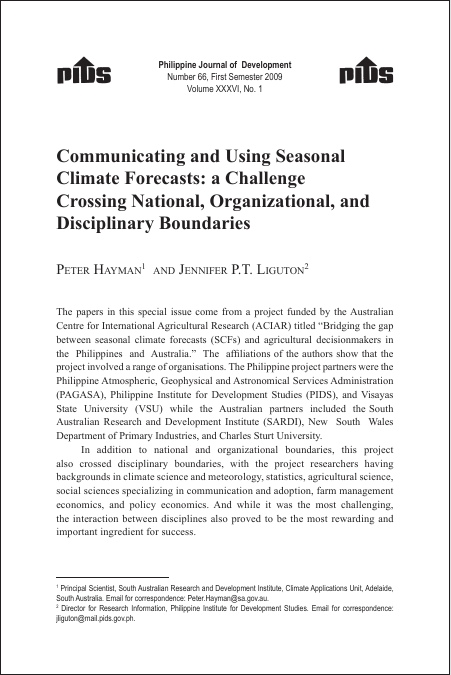Abstract
This issue explores key economic and policy challenges shaping the Philippine economy. One study examines the shift from constant 1985 prices to chained prices in gross domestic product (GDP) measurement, revealing significant changes in sectoral shares and highlighting the declining role of agriculture and industry alongside the growing dominance of the services sector. Another study delves into rules of origin (ROO) in East Asian free trade agreements (FTAs), discussing the complexities of trade facilitation and the need for more streamlined and inclusive policies. Health disparities are also a focus, with an analysis of maternal and child health services utilization revealing persistent inequalities across regions and economic classes. The findings emphasize the need for targeted interventions to improve healthcare access. Meanwhile, an assessment of the fruits and vegetables subsector underscores its potential for agricultural diversification and rural development, despite policy and structural barriers limiting its expansion. Finally, a study on remittances investigates their impact on family expenditures, assessing whether these financial inflows contribute to productive investments or increased consumer spending. As labor migration remains a crucial economic factor, understanding remittance utilization is essential for maximizing its development benefits.
Articles
SHARE
